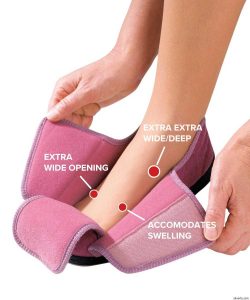8 Tips for Post Surgery Care At Home
What steps can caregivers take to make post-operative care and experience better?
Getting surgery done is a stressful decision despite the positive outcomes it can bring. For seniors, it is even more difficult because of slow healing and increased risk of complications. Post-operative care for seniors is an extremely important step for a successful and healthy recovery. Once they are discharged from the hospital, post surgery care at home can become an intimidating task for family caregivers. How do caregivers schedule their time and make sure the patient heals comfortably?
Here are some tips for post surgery care that can make the post-operative procedure easier for patients and caregivers at home:
Plan For Recovery at Home
It is common for caregivers to suffer from burnouts due to exhaustion. Hospital stays can be very stressful especially if a caregiver is alone during the process. It would be very helpful to check and see what amenities or post surgery care clothing will be needed at home. Cleaning the house, re-arranging the furniture and removing carpets is a good idea if the patient is weak and prone to falls.
Do They Have Comfortable Footwear?
Your loved may be suffering from swollen feet after undergoing a surgery. One of the leading causes of swollen feet is immobility. Proper footwear can help them feel comfortable. What kind of footwear is best for swollen feet? Shoes that are extra extra wide are great because they can accommodate all levels of swelling. Slip Resistant shoes provide security because of their soles. They help prevent potential slips and falls.
Natural Remedies are also great for alleviating condition of swollen feet. Healthline offers are few tips:
- Soak your feet in cool water.
- Drink plenty of water.
- Wear shoes that allow your feet to breathe and move freely.
- Rest with your legs elevated.
- Wear support stockings.
- Do a few minutes of walking and simple leg exercises.

Safety Products
Installing safety rails and bed handles is a great precautionary step for post surgery care especially because most of the strong pain medications make patients drowsy. A recliner is a great idea for someone who has had a shoulder replacement surgery done. Doctors recommend sleeping on recliners for a month or two to avoid harming the new joint or to sleep at a position that can interrupt the healing process.
Adaptive Clothing
For elderly patients or seniors, lack of mobility leads to development of varicose veins ad swollen feet. Keeping compression socks at home is beneficial for their recovery and will also help them sleep comfortably at night. Arm slings are usually prescribed before the surgery so make sure they have been purchased to avoid last-minute stress. For example, shoulder replacement surgery requires an arm sling that must be worn right after the operation to avoid any arm movement. It is not easy to change a patients clothes after they have had an arm surgery, but there are dressing solutions.
There is a range of easy nightwear and adaptive clothing available that will help the caregiver dress or undress the person who is recovering from an arm or shoulder surgery. Adaptive clothing also helps the caregiver clean the incisions and wounds without having to undress the patient every time. Adaptive clothing/tops completely open up, allowing the individuals arms to be slid into the garment sleeves without ever having to raise/lower their arms or struggle with small neck openings.
Ask your doctor for guidance
Don’t hesitate to ask questions. Before the doctor decides to discharge the patient, ask questions and find out about the best post surgery care procedures, guidelines, advice, and tips. Doctors and nurses are the experts who can answer questions that will help the patient recover properly. It is better to find out the right post-operative procedure while the patient is still in the hospital.

For some extra help, caregivers can also ask the hospital social workers or case managers about home health care options or physiotherapy sessions that can be done at home. Some patients who have a history of other health issues, such as diabetes, need extra care and precaution. If you see that the patient has fever or is not feeling well, it is better to have them stay at the hospital than to take them home.
Schedule follow-up appointments
Scheduling follow up appointments can help the caregiver create a timeline for appointments and physiotherapy sessions (if needed). It is better to be prepared for sudden trips to the family doctor in case the patient doesn’t feel well. Post-operative patients go through a lot of pain so providing them with comfortable footwear will help them walk in and out of the house easily. It is better not to use footwear that can slip and slide and cause the patient to fall. Remind them gently to walk slowly and not to take hurried steps.
Prepare for side effects
Hospital medications usually stop on the day of discharge, but most patients are given pain medications to manage discomfort or post surgery pain. If these medications are new for the patient, they can have some unintended side effects during post surgery care. It is important to be mentally prepared for unexpected issues. Keep an eye on the patient to see if they are healing well or if they need to see the doctor as a precautionary step.
It is important to be knowledgeable about the potential side effects of new medications that have been prescribed. Many drugs can have interactions, ask if the new prescription will react with existing medicines or certain food. Caregivers can save themselves the trouble of going through unexpected issues if they talk openly and discuss potential risks with the doctor.
Ask for help
Caregiver stress is often associated with exhaustion and sense of isolation. Most caregivers are hesitant to ask for help because they fear being judged. It is common for caregivers to feel guilty when asking for assistance. But a patient who is recovering from surgery needs diligent care and attention. If the caregiver feels tired, it is always better to ask for help.
According to AARP, physical and psychological wear and tear can lead to caregiver burnout — a condition of feeling exhausted, listless and unable to cope. It can cause caregivers to make mistakes that could endanger a loved one. Help can come in many forms and from family, friends, relatives or neighbors. Caregivers should consider reaching out when they feel they can’t cope.
Make a list of important phone numbers
When preparing for post surgery care, compile all important phone numbers and post them on a board so all family members have access to the list. The list can include numbers of doctors, physiotherapists, close family members and friends who can come if needed.
Patients have a right to receive a copy of their hospital record. It is better to keep that in a safe place at home in case its needed. The discharge history usually includes existing and new list of medications, operation reports, and test results.
Help them feel comfortable
Post-operative recovery is a difficult phase for the patient as well as the family members. Patients are usually asked to sit with elevated legs especially if they had knee surgery. Assisting them to sit in a recommended position will help them feel comfortable. Pain and medications can also lead to feelings of frustration and sadness. Putting a few items of their choice, like magazines and snacks can help them feel positive and inspired during post surgery care.
Do you know any family member or friend who recently recovered from surgery? Do you have any tips that we can share? Leave a comment and share your experience!





Comments
Great post. Information given about post-surgery care is really helpful. I like the idea of adaptive clothing because making the patient comfortable at home is very important. Comfortable clothes will help them in relaxing. It is tough for the patient to wear normal clothes after surgery because of wounds. Adaptive clothing will help all kind of patients to make a comfortable body movement after surgery. Thanks for sharing.
Thank you, we are very glad you found the article useful! You are right, it is very difficult for the patients to wear normal clothes with narrow openings after the surgery. Adaptive Clothing helps them feel comfortable!
Thank you Elena! We are very glad you found the article useful! 🙂
Very informative post. Thanks for sharing valuable tips. I like the ways to improve patient health after post-surgery. Always contact your doctor if you develop a fever, increased pain, or bleeding at the surgical site. Don’t hesitate to contact your doctor if you have any questions.
Thank you so much for the great feedback! If you have any topic suggestions in mind that you think should be covered, let us know! As a reader, your ideas are very valuable to us.
Very well written article! Looking forward to read more posts from this author.
Thank you Charles! We are very pleased to know that you found the article helpful.
I agree that you should be prepared for sudden doctor trips just in case. My mom needs to have surgery on her neck this summer. I’ll keep your advice in mind while I’m taking care of her.
Sorry to hear your Mother is having surgery but it really makes a big different when you are prepared ahead of time, wishing you and your family the best!
very nice… i really like your blog…
Happy to hear, thank you for reading!